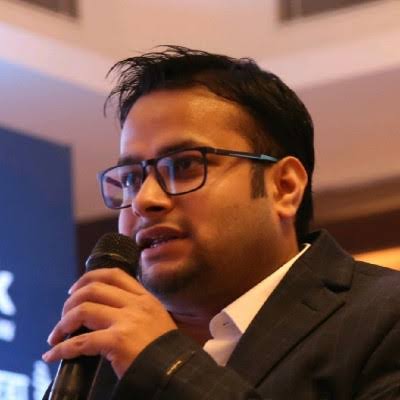
Written by
Updated :
Reviewed by
Achieving top levels of fitness may help you feel better and contribute to increased mental & physical productivity; but can it also provide you with opportunities to earn a higher income? And if it does, is there any connection between health and wealth?
If you are one of those who like to be on top of the health curve, you must be putting in a lot of hard work & following stricthealth principles. These health principles are very similar to the principles of wealth and when you think about it, they may give you a familiar feeling.
Healthy Living & Financial Rules
There are more similarities between healthy living and wealth than just one supporting the other. For example, the four most important and basic rules for long-term health are:
1. Start at an early age
2. Be Consistent
3. Aim for Long-term health benefits
4. Plan for Contingencies
Even if you replace health with wealth, the four principles hold true.
Why Start Early in Wealth?
Staying healthy is easier if you maintain a healthy routine and exercise from an early age. However,it becomes increasingly difficult as your age increases. Similarly, people who start investments later in life, find it is harder to create wealth. In fact, if you begin early, you are likely to be richer at your later stages in life, even if your investments are small.
Consider the following scenarios:
Scenario 1:
1. At the age of 30,you start to invest 10,000 per month at 8% per annum
2. By the time you reach 60, you will accumulate a corpus of 1.5 crores
Scenario 2:
1. You wait until45 years of age and start with 20,000 per month at 8% per annum
2. By the time you reach 60, you will accumulate only up to 69.7 Lakhs
(Source: BOI AXA Investment Managers Private Limited: http://www.boiaxa-im.com/myplanner/compoundingcalculator.php#top)
The corpus in the second scenario is less than half of what you’d accumulate in the first. So, the principle – “Start early, even if small.”
Is Consistency Important?
Just like health, in wealth creation as well, consistency is more beneficial than anything else.In the previous example, imagine if you stopped investing for a few years,what will happen to the corpus?
Though clearly, it’ll be lower than 1.5 crores, let’s find out the real impact.
Just to be accurate, let us assume you skipped investing from the age of 40 up till 45(i.e. for five years). The corpus at the age of 60 will be approximately Rs. 1.2 Crore. Five years’ investment gap in the middle takes away Rs. 30 Lakhs from your retirement corpus.
(Source: http://www.zenwealth.com/BusinessFinanceOnline/TVM/TVMCalcWindow.html)
Importance of Long-Term Vision
Once again, like your fitness regimen, your efforts to create wealth should also aim for long-term goals.Some long-term goals, like retirement, are so big that achieving them in short time is simply impossible. Thus, ignoring them while fulfilling your short-term financial needs and goals may not be advisable.
Imagine, investing for a new car you want to buy five years from now, but not investing for retirement which is 30 years from now. You will be able to buy a better car, but post-retirement life may suffer without recourse.
In the second example above,your retirement corpus difference of Rs. 30 Lakh (missed investing for 5 years), would mean: Your monthly income post retirement will be lower by about Rs. 2.7 Lakhs* a year.
* Assuming a survival period of 25 years after retirement.
(Source: http://www.zenwealth.com/BusinessFinanceOnline/TVM/TVMCalcWindow.htm). The solution is to invest for both, and not to ignore your long-term goals while fulfilling the short-term ones.
What is Contingency Planning?
Contingency planning or planning for the unexpected is a very important part of life and financial planning. The contingency plan in the financial plan includes:
1. Building an emergency fund
2. Buying sufficient insurance covers
b. Health/Medical Insurance
c. Critical Illness cover
d. Accidental cover
Why Contingency Plan?
Your investments are usually aimed at multiple long and medium-term goals, including those of your family. The emergency fund and insurance can help you fend off the sudden emergency expenses without affecting these investments.
Even when you are leading a healthy lifestyle, contingency planning is helpful. Health emergencies can affectanyone, and they strike not only your health but also wealth. Thus, health and critical illness insurance covers must be a part of your contingency plan.
Following example shows the effect of disturbing long-term investments on your financial goals:
Amitabh is saving for the goal of buying a house five year from now. Without a contingency plan, the scenario will look something like
Amitabh's Goal is to save |
Rs. 500,000 |
In |
5 Years |
Every month he will invest |
Rs. 6500 |
In an instrument paying interest of |
10% p.a. |
He is well on his way to achieving his goal but is hospitalized after three years. Hospital and recovery expenses are Rs. 75,000.
Since he does not have an emergency plan, he withdraws Rs. 75,000 from his home buying investment.
Results of this sudden withdrawal from investment are:
Amitabh falls short of his goal and receives only Rs. 408,000 at the end of 5 years
He must continue investing for another seven to eight months to achieve his goal of Rs. 500,000
(Source: http://www.zenwealth.com/BusinessFinanceOnline/TVM/TVMCalcWindow.html)
If Amitabh had a contingency plan, he would have met his medical expenses out of the health insurance cover and emergency fund, without delaying his home buying goal.
A good contingency plan will help you get back on your feet even if you were to suffer a health setback without affecting your and your family’s financial goals.
Why Include Basic Life Cover?
As mentioned above, a contingency plan is to ensure that your family’s financial goals and future remains unfazed by emergencies. Basic life cover or term insurance is an important part of a good contingency plan. A term insurance may not help you directly, but it will certainly help your loved ones if you are no longer there for them.
The basic life cover or term insurance comes into effect in the case of unfortunate demise of the breadwinner of the family.It provides a lump sum amount to your family to meet the immediate expenses and liabilities, along with a regular monthly income. Also, you can add accidental and critical cover benefits to the basic life cover policy at a nominal cost.
For example, term insurance offered by Max Life Insurance gives you additional benefits to include with the basic term cover:
1. Premium Waiver
2. Critical Illness Benefit as a part of basic life cover
3. Heart & Cancer Cover
4. Accidental Death and Dismemberment cover
These additional benefits are available at an additional nominal cost and can help to maximize the benefits from your term plan. With these additional benefits in your basic life cover and an emergency fund, your contingency plan will be complete.
How to Buy Basic Life Cover?
Buying a basic life cover or term insurance is easy. You can buy a basic life cover with additional contingency benefits like accidental death, disablement, cancer and heart care insurance etc. online through MaxLife’s website.
Click here to know more about the available covers and estimate your premiums.
ARN:- Jul21/BG/19


